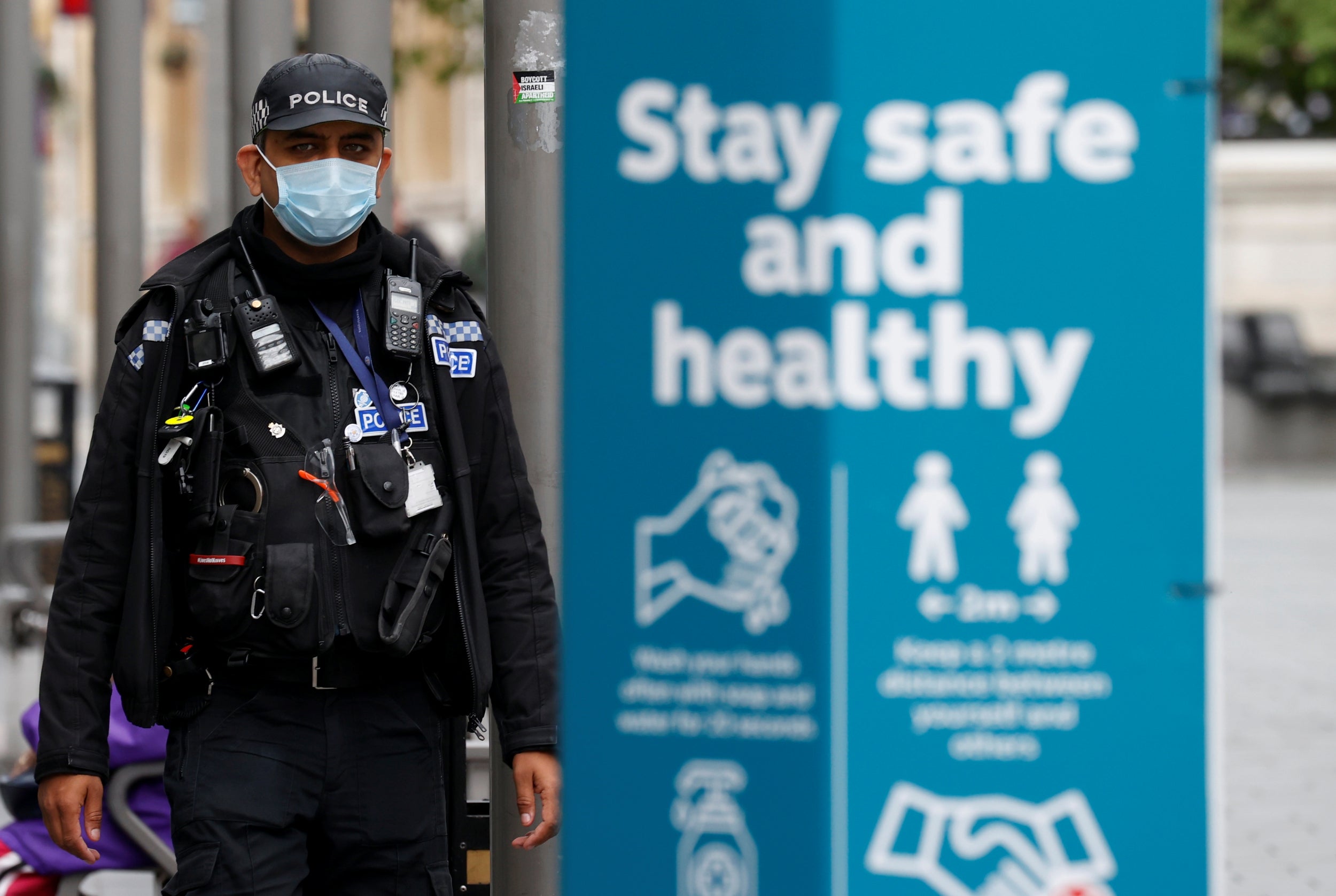Coronavirus: ‘No clear source’ behind Leicester outbreak, says Public Health England
No evidence of outbreaks in hospitals, care homes or industrial facilities, report says
The government has been unable to pin down the source of a surge in coronavirus cases in Leicester that resulted in the nation’s first local lockdown – more than three months after the pandemic took hold in the UK.
A report by the Public Health England (PHE) agency found no evidence of outbreaks across care homes, hospitals and industrial settings, suggesting that the fresh spike in infections was caused by community transmission.
It comes as newly released figures reveal the contact-tracing programme failed to reach a quarter of people who tested positive for Covid-19 in England between 18 and 25 June.
The PHE analysis, released on Wednesday, found a surge in infections among those aged under 19. “The reason I said what I did last night [Monday] about Leicester is that it [has] an unusually high incidence [of cases] in children...” health secretary Matt Hancock told the BBC on Tuesday when asked why lockdown measures had been reimposed on the city.
Officials said there was no “analytical link” between the reopening of schools to more pupils in June and increased infection rates, but that further investigation would be “sensible”.
Preliminary investigations suggested the rate of infection rate in the city had fallen from 140.2 to 135.7 per 100,000 people between 20 and 27 June. The report also suggested that the increase in reported cases could be partly due to “growth in availability of testing” in Leicester.
This is still significantly higher than the overall infection rate in England, which fell over the same period from 10.7 to 6.7 per 100,000 – despite the easing of some lockdown restrictions.
It concluded the evidence behind the scale of the outbreak was limited but that the proportion of positives from PCR testing – the national standard for identifying new coronavirus cases – is rising. On Monday, crisp manufacturer Walkers confirmed that 28 of its staff had tested positive for the virus in June.
A spokesperson for the government said: “NHS Test and Trace has already helped to stop more than 100,000 people from unknowingly spreading the virus and we have been working closely with our local partners, including in Leicester, to provide them with the resources and tools they need to take swift action to deal with any new local spikes in infections.”
Academics and clinicians from the University of Leicester said reimposing lockdown represents a “failure of timely intervention”. In a letter published in The Lancet medical journal, the group wrote that the spike of regional infections had exposed “key problems” in the government’s ability to share data that needed to be “urgently addressed”.
“In particular, the opportunity to escalate interventions locally has been stymied by the inadequacy of information sharing,” the letter said. But its signatories report that news of the city’s outbreak came as a surprise to local health organisations, who were only able to access “pillar 1” data at that time.
Pillar 1 data – tests carried out in NHS and PHE laboratories – found that the number of new cases per day was low throughout the first half of June, according to the authors.
They said that information through pillar 2, testing of the wider community, indicated an ongoing spike but was “not communicated in a timely manner” to local authority and health organisations.
The correspondence raises concerns that an area-specific lockdown will “target and disproportionately affect ethnic minority communities”, adding that adherence to any proposed measures requires effective community engagement.
“We should remain mindful that lockdown is a blunt and damaging tool of last resort that represents a failure of timely intervention,” the letter stated. “Our experience brings into sharp focus the shortfalls in the current identification and management of local Covid-19 outbreaks.”

The letter, signed by seven academics and clinicians from the university, calls for a coordinated public health response that is “locally-led, agile, and responsive to prevent unnecessary morbidity and mortality”.
Shadow health secretary and Leicester South MP Jonathan Ashworth said he supports the local lockdown but called on the government to give residents more clarity.
“People are really worried in Leicester, people are going to be anxious. People who are shielding are very, very scared, “ he told Good Morning Britain on Tuesday.
“People who were planning to get their businesses open this Saturday are desperately worried about their livelihoods and what happens next with the economy.
“And every parent in Leicester is concerned about the safety of their children obviously, but is also deeply concerned about their children missing out on more education.”
Additional reporting by Press Association
Join our commenting forum
Join thought-provoking conversations, follow other Independent readers and see their replies
Comments
Bookmark popover
Removed from bookmarks